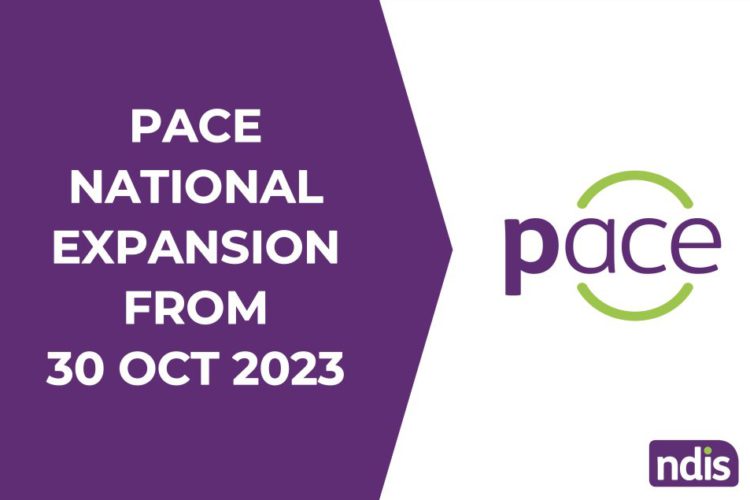
Goals are results one intends to achieve within a given time. As a participant, goals are crucial not just to get into the programme but also to have clarity on self. And the NDIS encourages participants to set at least one goal.
Interested participants are to inform their LAC or NDIS planners about their goals. Their planner helps put a clearer expression on goals and see how the NDIS can come in, or other assistance from others can be rendered.
NDIS Goals: What They Are?
NDIS Goals, as with any other goals are, in a layman’s terms, what someone or a group of people intend to achieve.
NDIS goals should be focussed at either physical, social, or independent needs. Setting these goals is important to the NDIS because it is helpful to the beneficiary and relatives on whom they are dependent.
A good example of physical goals can be to go places without support, or learning a motor skill.
A social goal may be to be able to converse with people. And an independent goal can be to get a paying job or independently managing ones funds.
A goal can be short, medium, or long-term, and it can vary on what it aims to achieve.
A short-term goal is a goal that one can attain in a year or less. A medium-term goal takes more years, but it’s still within 2 to 3 years. In contrast, long-term goals aim higher both in time span and the magnitude of achievement.
It is important to always set goals that are achievable and flexible. The achievability gives room for growth, while the flexibility allows inevitable changes that come along the way.
Why Are Goals Important for NDIS Participants?
Goals are important for NDIS participants for a lot of reasons. Here are some of the major reasons:
- Allows them to know their strengths and weaknesses by setting goals. And you know which areas to improve.
- Sometimes, setting goals acts as a pathway to achieving independence. Whether short, medium, or long, all goals aim to free a person from limitation of some sort.
- Goals are important because it helps determine if there is progress being made.
- Goals help take responsible steps towards helping participants achieve what they want to be. It helps take calculated steps towards achieving the set of objectives over a period.
- Goals are important because they set the direction for family and friends in various ways. Helping participants achieve their goals not only improves their lives but the lives of those around them.
- Goal setting is also important to NDIS, and so it encourages the process. What is even more important to the commission is the success of the goals. This is why participants are encouraged to set realistic goals.
Understanding the Link between Goals and the Help NDIS Participants Need
The first thing a participant should know is that the NDIS will only help with goals beneficial to a participant.
Goals that do not have any intrinsic value or misaligns with the beneficiary will not be considered.
The planner takes note of a participant’s goal during the planning meeting. These goals may revolve around any aspect of the participant’s life or in its entirety.
The planner asks questions that determine what will be prioritised by the commission and what should be discarded. Once the participant’s needs have been determined, they will be worded into clear and concise goals in line with the required funding to source the supports required to achieve the stated goals.
The NDIS plan will include:
- Details about the participant—for example, your daily activities, where you live, and your carer(s).
- Information about the unfunded support family and friends will provide.
- Information about the support to be provided by services and support groups like NGOs, libraries, health centres, and other governmental organisations.
- Details about the participant goals including short, medium, and long term goals. This is the most important part of the plan.
Helping NDIS Participants Meet their Life Goals
From what we have learned above, consider these few tips when devising a care plan to help participants achieve these goals.
- Identify the participants physical, social, or independent goals
- Identified the long-term and short-term goals
- Identify the participants circle of supports and their responsibilities in helping the participant achieve their goals
- Leave room for contingencies and factors that may affect the actualisation. Experience has shown that people with more flexible goals tend to achieve more when compared to rigid goals. Focus more on areas of the participants life that need improvement. Ensure these are considered when planning services.
- Goals should be pragmatic and result-oriented rather than ideal – a good goal also focuses on results rather than process because the process might get in the way of achieving the goal. Ensure staff have a clear understanding of the participants goals and how the services they are receiving are geared toward helping participants achieve their goals.
- Goals should be measurable. Ensure you are able to track and report on progress toward the participant achieving their goals.
It is also important to remember that helping achieve outcomes for participants is a shared responsibility. It is important for the participant to also focus on the services they are receiving and how it is helping them achieve their goals. For this reason it is important for them to continually think about what suits them and what they want to change for good in relation to the services they are receiving.
Considering the above ideas will help develop processes that will ensure quality of care that is outcomes focused.
Need Some Help?
Apart from delivering world-class NDIS-designed software, Brevity software greatly benefits NDIS Providers through its best practice goal management and outcome tracking features.
Our NDIS provider software an end-to-end solution designed to cater for all the needs of the industry, and has helped providers deliver great results to their clients.
Need a demo or a trial to see how Brevity can help you make the best decision on managing your NDIS plan? Click on this link to begin your journey with Brevity.
Originally published Dec 20 2021
Frequently Asked Questions
The first thing you consider when trying to write your NDIS plan is to reflect upon yourself. Consider the area you want to improve, both in the long and short term, and the strategies required to achieve the goals.
The three main support purpose categories in the NDIS are: core, capital, and capacity. With time, this support will envelope other areas, too.
You can have as many as possible goals. But it is advisable to streamline your goals into something achievable and feasible.
You should include goals aimed at your independence for others to support your plan. Learning a motor skill, swimming, paying your bills, or feeding yourself are good examples of what should be included in the NDIS plan.




